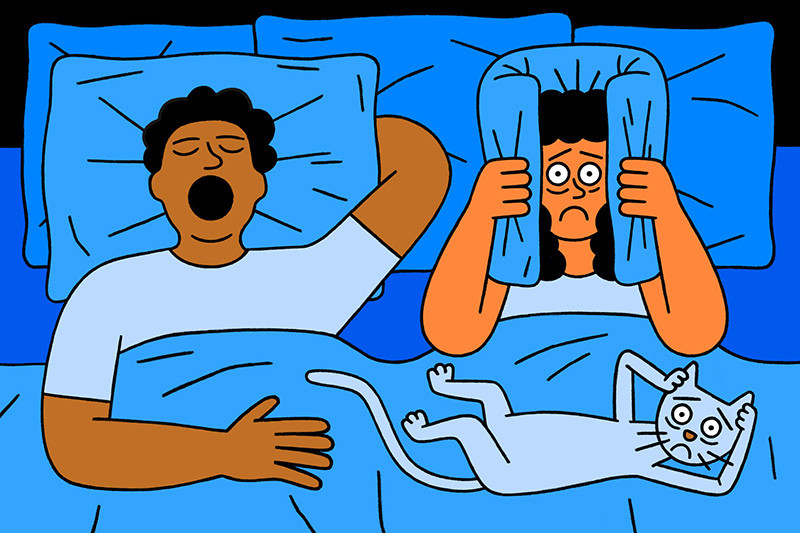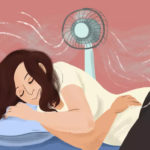
In the United Kingdom, approximately 15 million individuals experience daytime sleepiness, with men constituting a larger proportion.
While napping may seem harmless for you, it can disturb and prevent others sleeping next to you from getting a good night’s rest due to your loud snoring.
To combat this issue, many individuals try using nasal patches and changing their sleeping positions.
In an effort to address this syndrome, sleep expert Katherine Hall has partnered with a mattress company to share simple yet effective tips for improving sleep quality.
Regular throat exercises can help reduce snoring.
Katherine Hall suggests repeating the sounds of vowels in the alphabet as a top tip for reducing daytime sleepiness. This throat exercise helps strengthen the muscles in the throat, preventing them from vibrating during sleep and causing snoring.
Take a warm bath before bedtime.
Oftentimes, daytime sleepiness is caused by irritants and allergens that narrow the nasal passage. To alleviate this, taking a warm bath before going to bed can moisturize the nasal passage and facilitate better breathing at night, which reduces sleepiness.
Avoid eating too close to bedtime.
Avoid consuming meals too close to bedtime, ideally having dinner about four hours before going to sleep. This allows sufficient time for digestion and reduces pressure on the chest and lungs, preventing sleepiness.
Keep pets out of the bedroom.
Consider excluding pets from the bedroom. Sleeping with pets can sometimes lead to allergies or respiratory problems due to dander or fur.
Practice mouth exercises.
A recommended exercise involves sliding the tongue along the roof of the mouth as far back as possible, or alternatively, pushing the tongue upwards against the roof of the mouth. Consistently performing this exercise helps strengthen the muscles in the mouth and helps control snoring.
Anh Tuấn (According to Mirror)
Tips for Keeping Cool on a Hot Summer Day
As extreme weather patterns become increasingly common, many are struggling to find ways to cope. With temperatures in our country rising and cooling far beyond what used to be considered normal for the season, winter often feels like spring and summer can be oppressive and sweltering. How can we prepare for and manage the drastic shifts in climate?





































